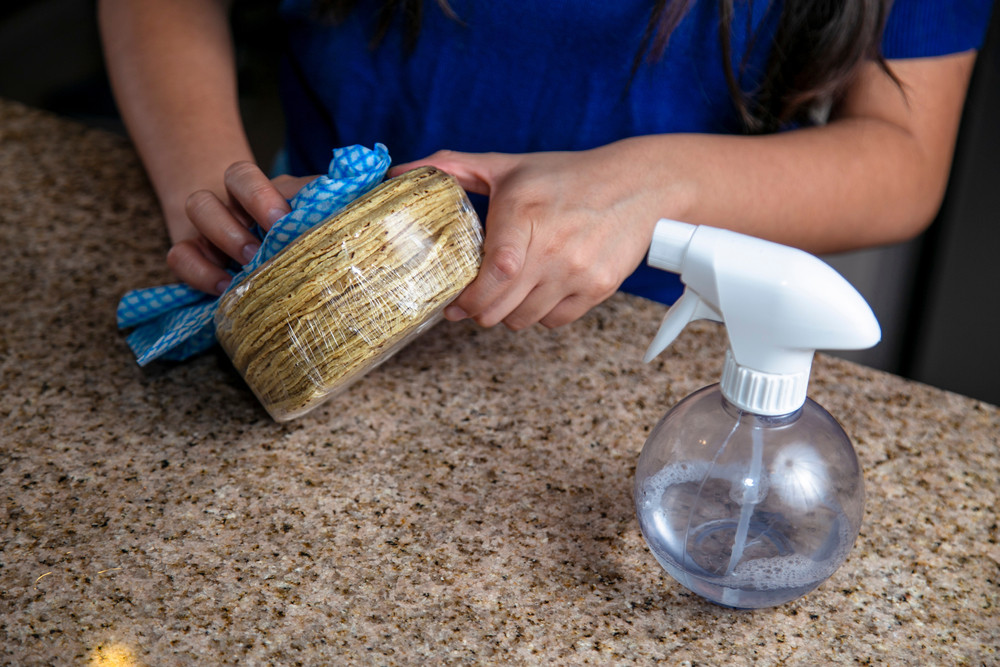Popular Reads
Top Results
Can't find what you're looking for?
View all search resultsPopular Reads
Top Results
Can't find what you're looking for?
View all search resultsSpraying disinfectant on food packaging unnecessary, expert says
Many have turned to using disinfectant or antiseptic liquids for protection, with some going as far as spraying disinfectant on all non-living items, including plastic food packaging.
Change text size
Gift Premium Articles
to Anyone
T
he COVID-19 pandemic has changed the way we live. What were seen as mundane activities before, such as ordering food from online delivery services or eating takeaway, can now be a source of fear about possible virus transmission.
Many have turned to using disinfectant or antiseptic liquids for protection, with some going as far as spraying disinfectant on all non-living items, including plastic food packaging.
Central Jakarta resident Sicillia “Angie” Anggriani Puspitasari, for instance, is always armed with a spray bottle filled with antiseptic liquid whenever she receives her food orders. She told The Jakarta Post that she has been spraying the liquid on food packaging, work bags and grocery items since March.
Angie said she learned about the product from a list of disinfectants released by the Indonesian Institute of Sciences (LIPI). The mother of a 1-year-old daughter said the new habit had given her some peace of mind.
However, Southeast Asian Food and Agricultural Science and Technology Center (SEAFAST) IPB director Nuri Andarwulan said the practice of spraying disinfectant on plastic food packaging was going a bit overboard.
Nuri said it was unnecessary as long as the packaging was fully intact.
“[…] Make sure the plate is clean, wash your hands after opening the packaging and take the food and cutlery, that’s enough,” she said.
Read also: Spraying disinfectants can be 'harmful', says WHO
During an online class for journalists hosted by Nestlé, Nuri also shared that international organizations such as the UN Food and Agriculture Organization (FAO), the World Health Organization (WHO) and the European Food Safety Authority had released a statement informing the public that COVID-19 could not be transmitted through food.
She also noticed there had been claims made on social media and by media outlets that the virus could remain on plastic surfaces for anywhere between two hours to five days. “We need to carefully examine the information. Those are studies for a different type of coronavirus, not COVID-19,” she said.
Referring to the Centers for Disease Control and Prevention (CDC), Nuri said the virus was spread from person to person through respiratory droplets, adding that the droplets might fall on a surface or object.
There is a possibility that a person may come into contract with the virus by touching a contaminated surface or object and then touching their own mouth, nose or eyes. For her final note, Nuri emphasized that good hygiene was key to avoid contracting COVID-19. (wng)











